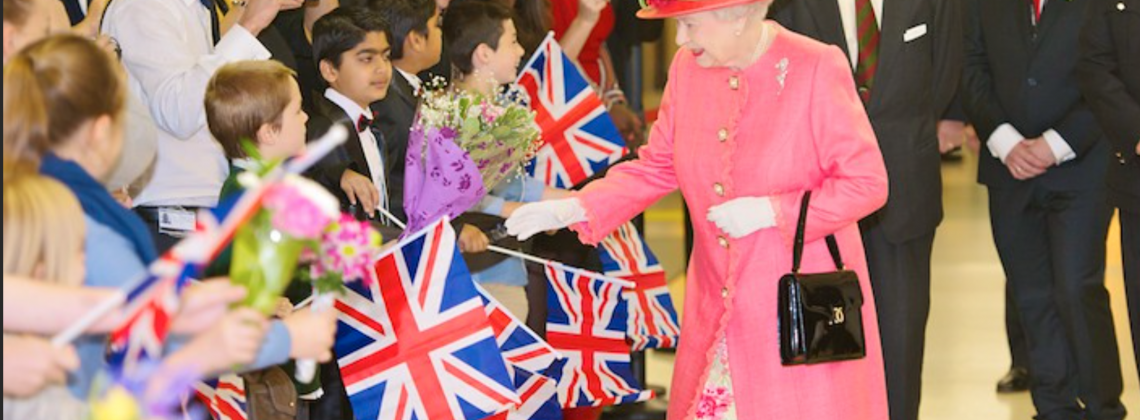

God save the queen—and all the other institutions that need saving
A recent op-ed in the Wall Street Journal celebrated the life and service of Queen Elizabeth II, suggesting that “her personal virtues are an antidote to our era’s self-promotion and social virtue-signaling.” The piece rightly connects Elizabeth’s approach to the monarchy to faith traditions and the ways of a bygone era. But somewhat surprisingly it also suggests that the reason for the dearth of such virtues today is due, at least in part, to public schools, which “were long considered an invaluable reinforcement of personal self-discipline and character” but have “abandoned that role to propagandize instead for politicized values.” The author goes on to claim that “This shift is one reason so many parents migrated to charters, school-choice programs and home-schooling.” Not only does a critique of American public schools seem like an unusual fit in an op-ed praising the queen, it also seems to suggest a failure to appreciate her conservatism.
Arguably, the reign of Elizabeth II is an example of classic Burkean conservatism. Her service and stoicism reflected a deep belief that institutions must persist and that people are the stewards of the state rather than its owners. Her time on the throne was an example of gradual change. The monarchy did experience changes in her ninety-six years, but as her funeral shows, there was hardly an abandonment of the past or disavowal of tradition.
Though the author of that op-ed may not be entirely against public schools, there are those within our country who would abandon them. They may believe that their opposition stems from their traditional values, but it’s likely that they have less in common with Queen Elizabeth than they think. Public schools are a long-standing American institution. Not only did they help us achieve some of the greatest rates of literacy and numeracy in the world, they have also helped ensure that the United States has had one of the best educated populations of workers. This is to say nothing of the civic role they have played for generations. They have been a cornerstone of our country. They ought to be conserved and reformed as needed, not abandoned.
Queen Elizabeth’s life is a testimony to the power of conserving institutions—of seeking to improve them by committing to a lifetime of service toward them. If ever there was a discredited institution to inherit, it would be the monarchy. But Elizabeth embraced the role she inherited and sought to fulfill its responsibilities as best she could and with great dignity. Most monarchs have not been models of virtue. Many schools are not models of excellence. Yet we, as individuals and communities, choose what the institutions we inherit will look like as we inhabit them. We decide whether or not we will commit ourselves to the real work of investing in them and upholding the best parts of their tradition.
The failure to see the value in our public institutions is, in some ways, a failure to love. Queen Elizabeth’s commitment to her role was a reflection of her love for her country and its traditions. She demonstrated that love in her wartime service as well. Those who love the cornerstones of our country, which include our institutions, do not wish to see them abandoned. There may be significant need of reform, but a key principle of conservatism is that preserving tradition with reform is better than the razed ground of a revolution.
We can see even more clearly this failure to love if we consider some of the other “institutions” that people love in the extreme. I cannot imagine a fan of any sports team suggesting that, rather than getting new management or better draft picks, the team should cease to exist. Or can you imagine the fans of a struggling team suggesting that the league itself should fold? Maybe we should get rid of major league baseball and stick to Triple A ball? We cannot imagine such a scenario. We have generations of fans in single families. We have communities that cheer on their teams every week. We also have generations of public school graduates and entire communities educated in their halls.
If we would mirror the virtues of Queen Elizabeth II, we must uphold and seek to improve our institutions. We can bring to our systems the “reserve, self-containment, duty, responsibility, modesty of demeanor, graciousness, civility, prudence, fortitude” that she has been credited with by many. To do so would be an expression of appreciation for our traditions and an act of love. We are free to choose otherwise, but we ought not call it conservatism.
Elizabeth Stice is Associate Professor of History at Palm Beach Atlantic University. Her essays have appeared at Front Porch Republic, History News Network, and Mere Orthodoxy.